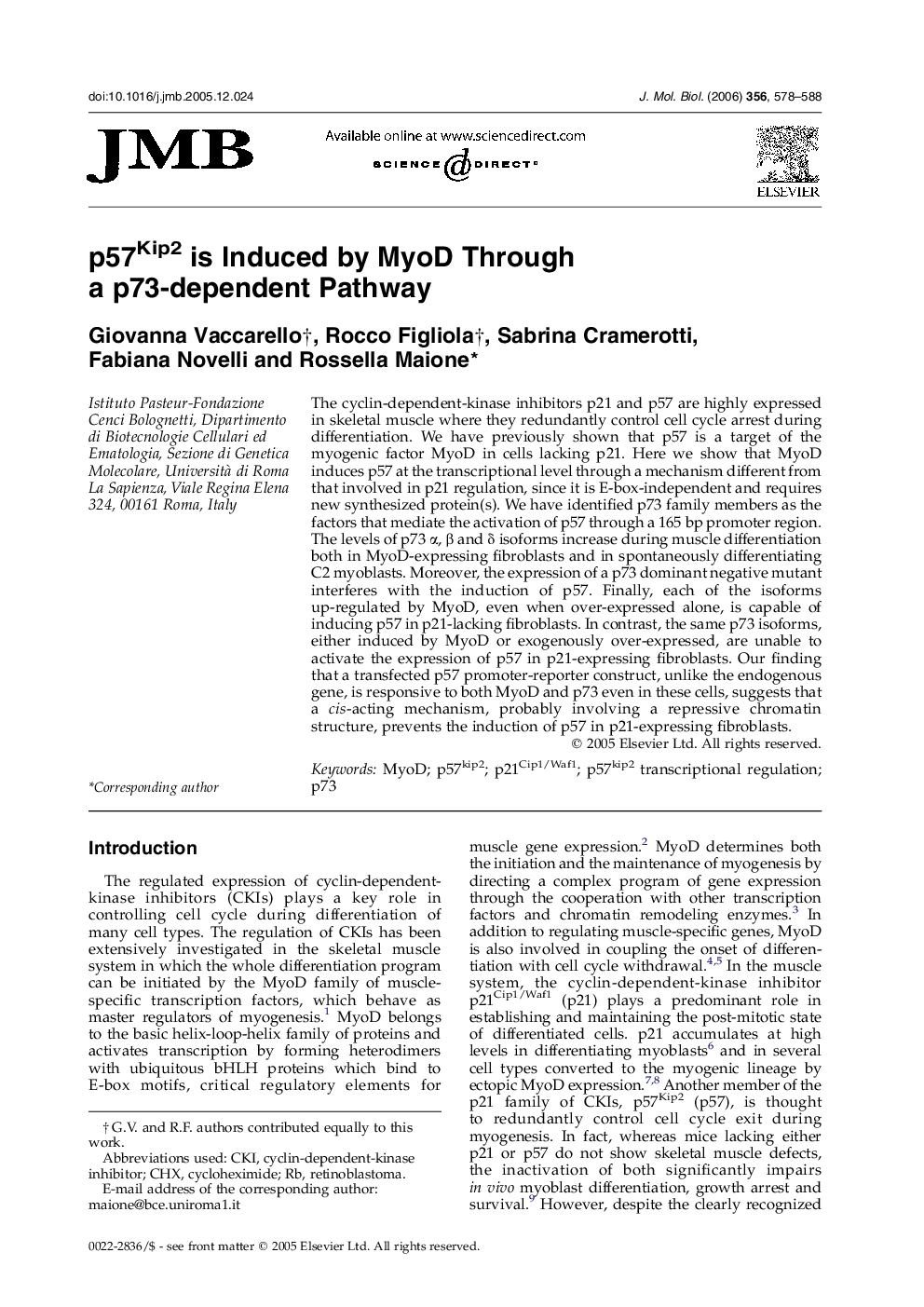| Article ID | Journal | Published Year | Pages | File Type |
|---|---|---|---|---|
| 2190073 | Journal of Molecular Biology | 2006 | 11 Pages |
The cyclin-dependent-kinase inhibitors p21 and p57 are highly expressed in skeletal muscle where they redundantly control cell cycle arrest during differentiation. We have previously shown that p57 is a target of the myogenic factor MyoD in cells lacking p21. Here we show that MyoD induces p57 at the transcriptional level through a mechanism different from that involved in p21 regulation, since it is E-box-independent and requires new synthesized protein(s). We have identified p73 family members as the factors that mediate the activation of p57 through a 165 bp promoter region. The levels of p73 α, β and δ isoforms increase during muscle differentiation both in MyoD-expressing fibroblasts and in spontaneously differentiating C2 myoblasts. Moreover, the expression of a p73 dominant negative mutant interferes with the induction of p57. Finally, each of the isoforms up-regulated by MyoD, even when over-expressed alone, is capable of inducing p57 in p21-lacking fibroblasts. In contrast, the same p73 isoforms, either induced by MyoD or exogenously over-expressed, are unable to activate the expression of p57 in p21-expressing fibroblasts. Our finding that a transfected p57 promoter-reporter construct, unlike the endogenous gene, is responsive to both MyoD and p73 even in these cells, suggests that a cis-acting mechanism, probably involving a repressive chromatin structure, prevents the induction of p57 in p21-expressing fibroblasts.
